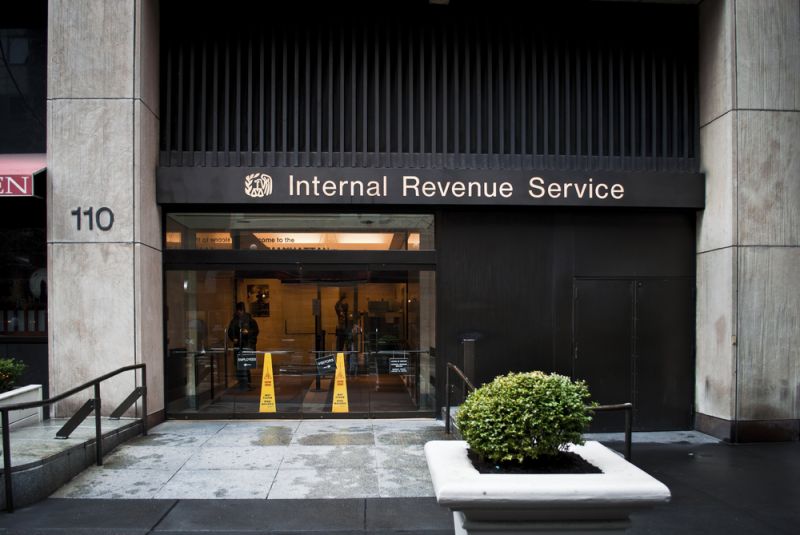
Former Libertarian Vice Presidential Candidate Wayne Allyn Root on Fox News.
Wayne Allyn Root is no fan of President Barack Obama. He’s a former Libertarian Party candidate for vice president and a “birther” who has questioned whether the president was really born in America. (Root studied at Columbia University when Obama was there and has questioned whether Obama really attended the school.) Root has been audited by the IRS—twice. And in recent days, within the right-wing media, he has become something of a poster child for the IRS scandal, suggesting that the IRS targeted him because of his political activity.
On Fox News last week, he proclaimed, “I am the face of Obama’s IRS attacks.” In WorldNet Daily, he recently wrote, “As an outspoken critic of Obama, I’ve been under IRS attack since January of 2011. I am living proof of how bad it is, when it started and that it was directed at individuals, not just conservative groups.” Root has offered his services to Sen. Rand Paul (R-Ky.), should Paul need a congressional witness.
But the root of his troubles could be not his anti-Obama politics, but his own finances, for Root’s less-than-conventional tax returns might have indeed warranted a close look.
Last October—months before the IRS scandal broke—Root maintained that he’d had a “spotless” tax history until January 2011, when he got an “unsettling” phone call from the IRS letting him know his tax returns from 2007 and 2008 (the year he ran for vice president) were being audited. In August 2011, the IRS sent him a deficiency notice indicating that he’d underpaid his taxes in those years by about $57,000. The agency demanded he fork over the unpaid taxes, along with nearly $13,000 in penalties. Root challenged the IRS in tax court and prevailed. But then, within days, he says, he was hit with yet another audit, for tax years 2009 and 2010. “That order had to come from the highest levels of government,” he has asserted.
Root insists his experience proves the IRS scandal goes beyond what the IRS inspector general found: that the agency gave unwarranted scrutiny to conservative groups filing applications for nonprofit status. But as many conservative groups are now asserting without evidence that they are victims of IRS political harassment, there are good reasons to consider Root’s claims skeptically.
According to tax court records, in 2007, Root and his wife reported about $215,000 in gross income to the IRS. But after claiming all sorts of deductions for travel, “professional services,” the use of his car or truck ($23,000), and “other expenses” ($36,000), Root claimed taxable income of only about $25,000. In 2008, the disparity wasn’t as dramatic: a gross income of $209,000, but $136,000 in taxable income, after deductions and business expenses. These are numbers that do tend to draw the attention of IRS auditors.
Root apparently filed a Schedule C, which is the form used by people who are self-employed and who don’t have regular tax withholding. Because it’s easy for people to hide income when they’re self-employed, the IRS devotes a fair amount of time to reviewing Schedule Cs. And when a Schedule C is loaded with significant deductions for travel, entertainment, and “other” expenses that drastically reduce the taxable income of the filer, the IRS applies particular scrutiny. People who report more than $100,000 in gross income on a Schedule C have four times the audit rate of ordinary tax payers. “One of the biggest pet peeves that the IRS focuses on are Schedule Cs,” Vincent Cervone, a federally licensed tax preparer and member of the New York Society of CPAs, says. “About 25 percent of all Schedule Cs get audited in a three-year-period. That’s a huge number.” Root also claimed a home-office deduction—and that’s been known to trigger IRS audits, too.
Given that Root declared 88 percent of his income nontaxable in 2007, he has a tough case to make that the IRS went after him because of his political views. And as he’s pointed out, when he appealed the decision in tax court, he won. (Root was not available for comment, but his spokeswoman says he’s still being audited for the later tax years.)
Root isn’t the only person whose recent claims of political persecution by the IRS deserve some doubt. The list of those who insist the IRS came after them due to politics includes Anne Hendershott, a conservative author who says in 2010 the IRS wanted to look at the expenses she claimed for her writing work; Franklin Graham, whose Billy Graham Evangelistic Association is already tax-exempt but who helped arrange for his famous father to endorse Mitt Romney for president last year; Jewish groups that support Israel; a couple of pro-life pharmacists; Family Research Council founder and evangelist James Dobson; and an anti-abortion group whose claims of being an IRS target date back to the Bush administration. Even Mitt Romney has been declared a victim. “I think some people are getting a little paranoid,” suggests Cervone, who believes “100 percent” that the IRS was wrongly targeting some groups. But he thinks it is highly unlikely that individual taxpayers were singled out due to their political views.
None of these high-profile claims seem related to the conduct identified by the Treasury Department’s inspector general, who confirmed that the IRS inappropriately scrutinized nonprofit status applications by conservative tea party groups in 2011 and 2012. But the apparent wrongdoing by the IRS has given license to anyone ever audited by the IRS to claim they were victims of political persecution, rather than legitimate candidates for audits. In Root’s case, the system sort of worked. His returns set off well-known alarm bells for auditors, but he was able to defend his tax returns. That story, though, doesn’t sell as well on Fox News.
Update: Following publication of this article, Root contacted Mother Jones to say that he is not a birther. He confirmed that this 2011 blog post is an accurate portrayal of his thoughts on Obama’s birth. Root also said that after the article was published, he was informed by the IRS that his second audit was closed with no taxes owed. (Root blogged about this resolution here.)












